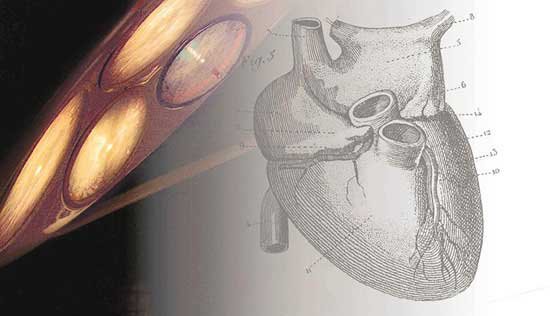
It is the medical nightmare that nobody wants to face. A close relative needs a new kidney. You want to donate, but there is no blood-type match.
For most patients there is only one thing left to do: join a waiting list, in the knowledge that the wait of up to two years could be too long.
But now, thanks to a scheme inspired by the way in which modern networks operate, coupled with a large helping of human kindness, there is another way to find and donate kidneys.
It is claimed that the new system, called paired donations, could significantly shorten the list of patients waiting for kidney transplants in the US. It could also be exported to other countries, including Britain, where there are about 5,000 people are waiting for a new kidney.
One of the first patients involved in the new scheme is Barb Bunnell, a 53-year-old from Phoenix, Arizona, who lived for years with polycystic kidney disease.
Mrs Bunnell’s husband, Ron, a chief administration officer of a hospital management company, wanted to donate a kidney to his wife, but the transplant could not go ahead because they were not matched.
However, Mrs Bunnell was able to get another kidney from a matching donor in Michigan — a 28-year-old man who donated for no other reason than altruism.
This is where the story would normally end. Under the new system, however, Mr Bunnell went ahead with his plan to have his kidney removed, and instead of giving it to his wife he donated it to a complete stranger.
The recipient of his kidney had been in a similar position as Mrs Bunnell: her best friend wanted to donate but, as with the Bunnells, there was no match. Now that the woman has been given Mr Bunnell’s kidney, her best friend will follow his example and give her kidney to another stranger, and so on, resulting in a chain reaction that could rapidly shorten the kidney waiting list and bring the waiting time down from years to months.
It is thought that eight transplant patients will ultimately benefit from the chain that began with Mrs Bunnell and her Michigan donor, although it could be many more.
The scheme was launched in 2000 but it has only recently been given approval by the Federal Organ Procurement and Transplantation Network, and is now awaiting President Bush’s signature — largely to clarify that a paired donation, such as Mr Bunnell’s “gift” of a kidney to a woman he had never met before, does not represent a form of payment.
The system is operated by an organisation called the Alliance for Paired Donation, based in Ohio. The organisers hope that, since it is illegal to buy a donated organ in the US, nobody will attempt to subvert the founders’ altruistic intentions. However, for all the high-tech computer code that makes the scheme possible, the “paired donation” programme still depends on people such as Matt Jones, the Michigan man who gave his kidney to Mrs Bunnell for no other reason than wanting to help.
Mr Jones is one of a tiny number of people willing to take the risk of undergoing an operation with a death rate of 3 in 10,000, simply as an act of altruism — yet doctors say that kidneys from living donors such as Mr Jones are far more effective than kidneys from deceased donors, because the circumstances of the death can make it hard to transport the organ to the right recipient in the necessary time.
“In my opinion, it’s just like giving blood or donating to charity,” Mr Jones told the Arizona Republic this week. “You’ve got something you don’t really need, you can help someone, you do it.”
Last week there were 72,393 people waiting for a kidney in the United States, according to the Organ Procurement and Transplantation Network. Wait time can easily stretch to years depending on blood type and other variables. For paired donations, the wait is likely to be shorter, in part because while everybody on a paired donation list needs a kidney, everybody on the list also signs up with a person who has a kidney to give.
Mr Bunnell said that he was delighted to continue the chain with his own kidney donation.
“I look at it as Barb got this gift from Matt, and I’m just paying it forward,” he explained. “It is terrific to be part of something bigger.”
Organ trade
£15,000 allegedly paid to Ukrainian kidney donors by nine Israelis arrested this month
3 contestants on a Dutch TV programme, The Big Donor Show, apparently vied for a kidney from a dying woman. It was a hoax
1,400 people sell one of their kidneys to a stranger in Iran each year
1,800 transplants a year in the UK. Last year 6,000 people remained on the waiting list
Source: Times database

No comments:
Post a Comment